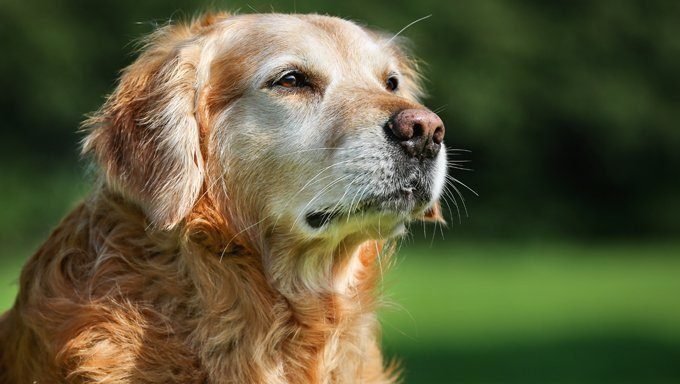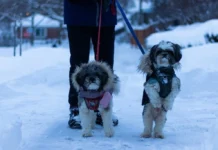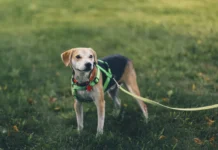Last Updated on August 8, 2022 by
If you consider adoption, there are many benefits to bringing home an older dog. They are usually house trained, they may already know some basic commands, and they have a mature temperament.
If the dog you’ve had since childhood is now approaching its golden years, it’s essential to continue doing the things you’ve always done together. Exercise is still necessary for a healthy, happy pet.
You may not be throwing a ball or hiking to the top of a mountain like you used to, but staying fit will help promote overall health and maintain weight, which is key to reducing the effects of arthritis.
Don’t overlook the importance of grooming, which helps protect the skin and coat and provides an opportunity to check the body for tumors – which are common in older dogs.
Here are some things you should know about senior dog care.
What defines a dog’s senior stage?
The first is the age of the dog
Like people, dogs can become stubborn as they age. Their ability to cope with change declines, and they find excellent security in known routines.
That said, your dog will also likely adapt comfortably to this slower-paced stage of life, becoming in many ways a gentler version of his adult self.
In your senior years, your dog will.
Probably sleep more. This is a normal part of the aging process.
Probably eat less. It could be that your dog is becoming pickier, but it’s also possible that their sense of smell and taste has declined to the point where eating is no longer as fun. Please consult your veterinarian to ensure that their appetite loss does not indicate a more serious health problem.
Easier weight gain. Keep your dog healthy with regular exercise. Your veterinarian can help you determine the proper daily intake and the pros and cons of a low-calorie senior diet.
Dental problems may occur, leading to serious health problems and making it difficult for your dog to eat. Try brushing your dog’s teeth at least three times a week and have them professionally cleaned by your veterinarian when needed.
It is easier to become dehydrated, harmful, even fatal. Your older dog should be drinking as much water as they usually do. If not, make sure their water bowl is located in a location that is easy to access and not difficult for older or arthritic people to get up and downstairs. Dehydration can cause or be a sign of other health problems, so if you are concerned, consult your veterinarian.
Be more sensitive to changes in the weather. Take extra care to ensure your senior doesn’t overheat in warm weather or become too cold in the winter. As their coats thin and circulation weakens, they are more likely to become uncomfortable.
Loss of some or all of their hearing or vision. As with humans, senses can become dull as the canine body ages. Cross-train your dog. That is, teach verbal and visual cues for basic commands so that you can still communicate if senses are diminished.
I may need help getting in and out of the car or up and downstairs. Stiff, sore joints make older dogs less flexible. A ramp or just your hands can help.
Things to look for in a senior dog
As with humans, as dog’s age, the list of potential health problems increases. Regular exercise – both mental and physical – can help avoid many problems, at least for a while.
At the same time, give your dog as much attention and love as they are used to receiving, if not more. Knowing that they are an essential pack member is crucial to their well-being.
Don’t forget to take your senior dog in for a physical checkup; they may be facing more health problems. Even old dogs can be aggressive. By the way, don’t forget to bring your Kuoser dog’s muzzle.
Generally speaking, older dogs are calm, docile, and easy to be around. As a result, they make a significant contribution to the family.
Your main concern may be a medical one. A visit to the veterinarian is also highly recommended if you notice any changes in behavior or if your dog seems uncomfortable or in pain.
Do you have a senior dog in your home? How are they different from younger dogs? Please let us know in the comments below!



























